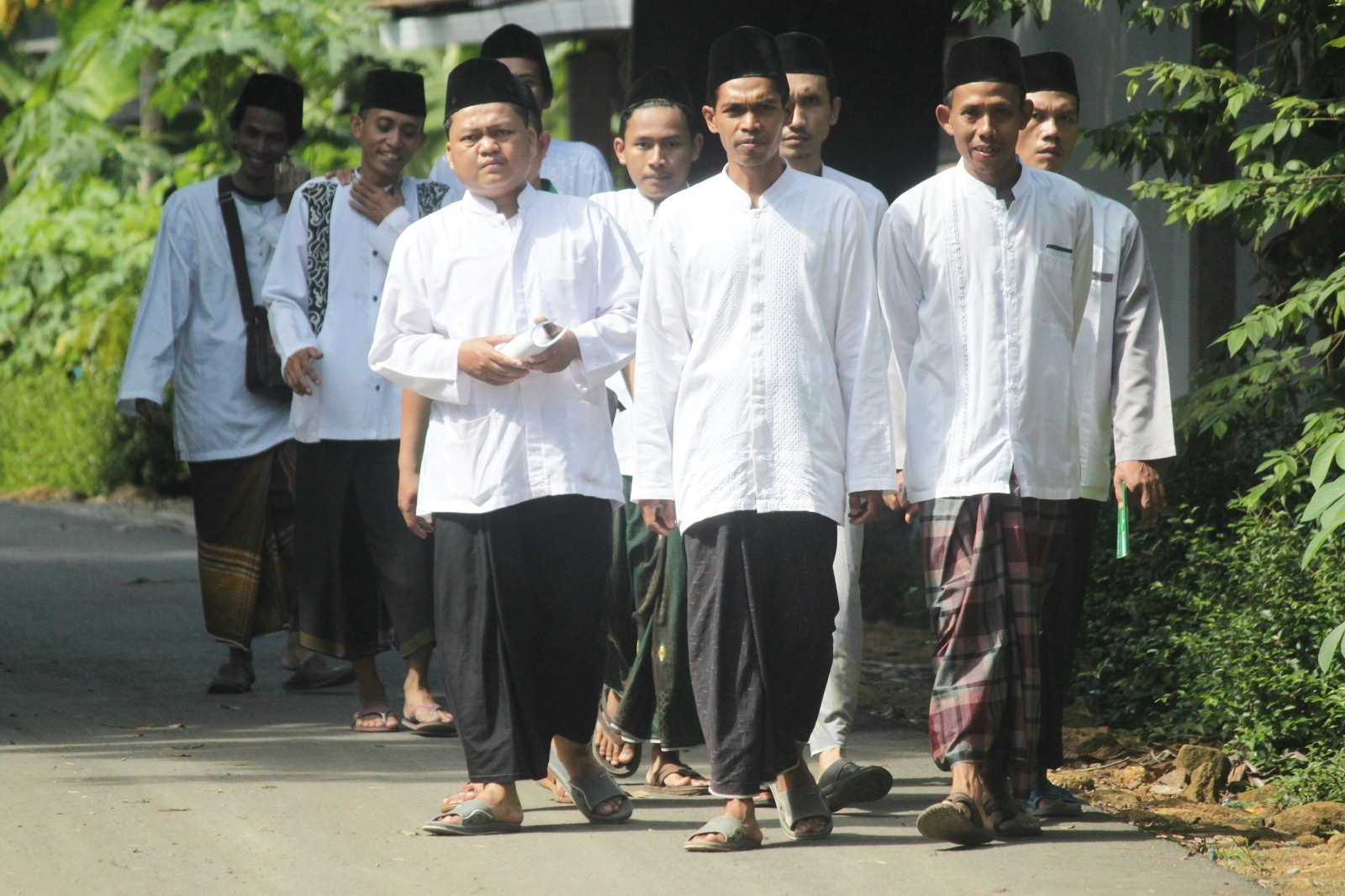50 Lebaran Sungkeman Words in Javanese, Sincere Expressions of Heart and Soul on Eid
If you are looking for references for Lebaran sungkeman words in Javanese, just check out the following review.

Mudik has become an inseparable part of the Lebaran tradition in Indonesia. This moment is synonymous with the journey back to one's hometown to gather with family. Every year, millions of people are willing to travel long distances to celebrate Idul Fitri with their loved ones.
However, did you know that the meaning of the word mudik has a long and interesting history? This word, which is now so popular, does not merely mean going home. It has deep linguistic roots and is closely related to Indonesia's history and culture.
To learn more about the meaning of the word mudik lexically and historically, just check out the following review.
The meaning of the word mudik is often considered simple, namely returning to one's hometown. However, if explored further, this term has diverse linguistic roots. In Javanese, "mudik" is believed to originate from the phrase "mulih dilik" which means to return briefly. Meanwhile, in Betawi language, mudik is interpreted as an abbreviation of "menuju udik", which means heading to the village or the hinterland.
Officially, the word mudik is now included in the Kamus Besar Bahasa Indonesia (KBBI). There, the meaning of mudik is explained as "returning to udik (upstream, hinterland)" or "going back to one's hometown". This indicates that the word has a broader meaning than just a regular homecoming.
Furthermore, the term "udik" itself has roots in the Malay language meaning upstream. In the past, the Malay people living in the upstream areas often traveled downstream for trade or economic activities. After finishing, they would return upstream in the evening. This return activity was then referred to as mudik.
From this history and etymology, it can be concluded that the meaning of the word mudik is not only related to Eid al-Fitr. It reflects the lifestyle of people in the past who lived in harmony with nature, especially rivers. This homecoming tradition then developed and adapted to become a part of modern Indonesian culture, especially during the celebration of Idul Fitri.
The mudik tradition in Indonesia has been ongoing for centuries. It is said that this habit has been practiced since the Majapahit Kingdom era. However, at that time, mudik was not directly related to the celebration of holidays. Agrarian communities, such as farmers, would return to their hometowns at certain times, for example, for traditional ceremonies or to clean the graves of their ancestors.
As time progressed, the meaning of the word mudik began to expand. After the spread of Islam and Idul Fitri became one of the major holidays for Muslims, mudik started to be practiced before Lebaran. Migrants took advantage of this moment to gather with family and celebrate the day of victory after a month of fasting.
The term "mudik" as a popular term only emerged around the 1970s. At that time, migrants from Jakarta began to make massive journeys back to their hometowns before Lebaran. This phenomenon is very massive and has become a national concern. Since then, the word 'mudik' has become synonymous with returning to one's hometown during Eid al-Fitr.
The government has even started to respond to this tradition with special policies, such as providing additional transportation, traffic engineering, and free mudik programs. The mudik tradition has become more organized and an important part of the social system of Indonesian society.
Now, the meaning of the word 'mudik' is not only physical but also emotional. It has become a symbol of the emotional bond between individuals and their hometowns. Every year, millions of people undertake long journeys to celebrate Eid with their families, proving how deeply rooted this culture is in our society.

Lebaran Tradition of Halal Bi Halal (credit: unsplash.com)
In addition to mudik, the Eid al-Fitr tradition in Indonesia is also filled with unique customs that enliven the atmosphere. Here are some common traditions practiced by the Indonesian people during Eid al-Fitr:
1. Grave Visiting
Many people take advantage of the mudik moment to visit the graves of their parents or ancestors. This tradition is a form of respect and a reminder of the transient nature of life. Grave visits are usually conducted a day or a few days before Eid al-Fitr.
2. Takbir Parade
The night before Eid al-Fitr is usually filled with the echoes of takbir. In various regions, people hold takbir parades with torch processions, decorated vehicles, and recitations of takbir. This tradition creates a festive atmosphere filled with joy in welcoming the day of victory.
3.Halal Bi Halal and Open House
After the Id prayer, the community usually holds a halal bi halal. This is a moment for family members, neighbors, and friends to forgive each other. Halal Bi Halal is often followed by visits to the homes of neighbors or relatives who hold open houses to welcome guests who come to visit during Eid. This tradition strengthens the bonds of friendship and creates social harmony.
4.Buying New Clothes
One of the traditions that is deeply rooted in society is buying new clothes before Eid. For many people, wearing new clothes symbolizes a fresh spirit and happiness in welcoming the holy day.
5. Eid Special Dishes
Ketupat, chicken opor, rendang, and dry cakes such as nastar or putri salju are mandatory dishes during Eid. These dishes not only delight the taste buds but also symbolize togetherness in the family.
6.Giving THR
Holiday Allowance or THR is often given in the form of new money to children or relatives. Receiving an THR envelope is one of the most awaited memories during Eid, especially for children.
That is the review of the meaning of the word 'mudik' and some interesting facts about it. Find more interesting and useful reviews at kapanlagi.com. If not now, when?
(kpl/psp)
Cobain For You Page (FYP) Yang kamu suka ada di sini,
lihat isinya
If you are looking for references for Lebaran sungkeman words in Javanese, just check out the following review.
This article will delve deeply into how to use WhatsApp Web, its features, as well as tips and tricks to maximize your usage experience.
In this guide, Kapanlagiakan explains the easy steps to set up this feature, both through WhatsApp's default settings and the following third-party applications.
Here are 350 motivational words for work that can help enhance your motivation and productivity.
Here is a collection of 350 words of patience and sincerity that can serve as reminders and encouragement in facing various life challenges.
Here are 350 examples of personal pronouns along with their explanations and usage.
Discover the secrets to perfecting the boiling of kepok bananas! With the right technique, you can achieve bananas that remain bright, delicious, and appetizing. Ready to create an unforgettable banana dish?
Experience the ease of boiling peanuts in a magic cooker with a practical method that guarantees soft and savory peanuts without the hassle! Enjoy the perfect taste of peanuts with just a touch of a button, and make this healthy snack your relaxing companion.
Experience the deliciousness of Betawi vegetable lontong, rich in flavor as a special dish on Lebaran with this practical recipe, ready to delight your taste buds and add warmth to family gatherings!
Tofu spring roll martabak is a practical and easy-to-make snack with various appetizing fillings. Here are the recipes for tofu spring roll martabak with various fillings.
Achieve your dream of glowing and healthy skin easily with this natural orange peel toner! Discover this refreshing beauty secret and create a stunning glass skin look using only natural ingredients.
If fried foods usually dominate, this time steamed takjil recipes can be a healthier choice. Here are some inspirations for steamed takjil recipes that are guaranteed to be loved by the family.